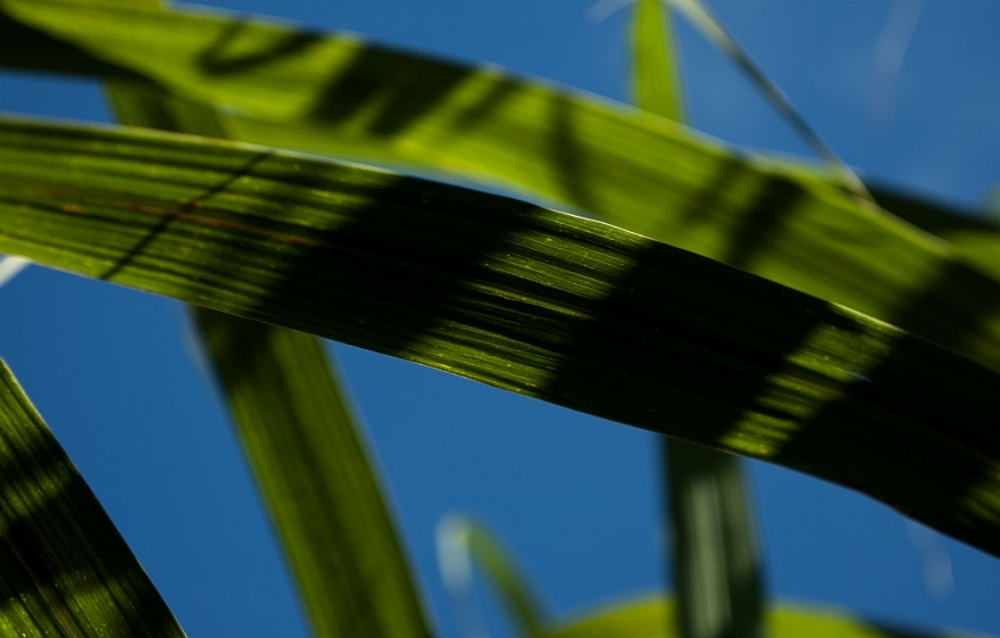

Brazilian and Belgian researchers have discovered five genes that when permanently activated in transgenic varieties make sugarcane more tolerant of hydric stress (photo:Leo Ramos Chaves)
Brazilian and Belgian researchers have discovered five genes that when permanently activated in transgenic varieties make sugarcane more tolerant of hydric stress.
Brazilian and Belgian researchers have discovered five genes that when permanently activated in transgenic varieties make sugarcane more tolerant of hydric stress.

Brazilian and Belgian researchers have discovered five genes that when permanently activated in transgenic varieties make sugarcane more tolerant of hydric stress (photo:Leo Ramos Chaves)
by Elton Alisson, in Brussels (Belgium) | Agência FAPESP – Lack of water availability during the development of sugarcane is one of the types of environmental stress that have very negative effects on the plant. In order to make it more resistant to hydric stress, researchers from several institutions in Brazil in recent years have tried to develop varieties of sugarcane that are better adapted to drought conditions.
A group of researchers from the institute of Biology of the University of Campinas (IB-Unicamp), together with colleagues from the Vlaams Instituut voor Biotechnologie (VIB) of Belgium led by researcher Dirk Inzé, made an important step in that direction. They identified a set of five genes that when permanently activated make sugarcane more drought tolerant.
The findings of the study conducted with funding from FAPESP, under the scope of the FAPESP Bioenergy Program (BIOEN), were presented at a talk on Monday (10/8) at FAPESP Week Belgium.
“We submitted the patent for those genes last month. Now we want to analyze them in transgenic sugarcane plants and then license them to interested companies,” Marcelo Menossi Teixeira, a professor at IB-Unicamp and project coordinator told the FAPESP News Agency.
The study that resulted in identification of the genes began in 2007. That year, a group of researchers from the University of São Paulo Chemistry Institute (IQ-USP), led by Professor Gláucia Mendes Souza, began a study to analyze genes expressed in a sugarcane variety planted in the Brazilian state of Alagoas under drought conditions. The experiment was carried out by a team led by Professor Laurício Endres of the Federal University of Alagoas.
Analyses of gene expression revealed hundreds of genes differentially expressed in sugarcane in response to the hydric stress. In characterizing them, the researchers identified some genes that were more activated than others.
Since it would take several years to confirm the role of the candidate transgenic varieties of sugarcane in the field, the researchers came up with the idea of testing some of the genes in tobacco, which is also planted under drought conditions. Menossi explained that this is because the plant takes only seven or eight months to grow and is easier to handle than sugarcane.
In a joint study with Belgian colleagues, the Brazilian researchers also tested the genes in wild mustard (Arabidopsis thaliana), commonly used as a model plant in genetic studies.
The analyses of the transgenic plants cultivated with the super-expressed genes confirmed that they conferred greater resistance to drought and oxidative stress.
“We determined that those five genes are activated by the sugarcane when the plant finds itself in hydric stress, to protect itself from drought,” Menossi stated.
“Our idea is to make genetic modifications to the plant to permanently activate those genes and thus enable the plant to be prepared for a drought situation so it can perform better under those circumstances,” he explained.
In laboratory tests, the researchers have already confirmed that transgenic varieties of sugarcane with some of those genes in a constant state of activation presented greater drought tolerance.
“Our goal is to obtain a transgenic sugarcane that is capable of withstanding long periods of rapid growth without irrigation,” Menossi said.
Republish
The Agency FAPESP licenses news via Creative Commons (CC-BY-NC-ND) so that they can be republished free of charge and in a simple way by other digital or printed vehicles. Agência FAPESP must be credited as the source of the content being republished and the name of the reporter (if any) must be attributed. Using the HMTL button below allows compliance with these rules, detailed in Digital Republishing Policy FAPESP.





